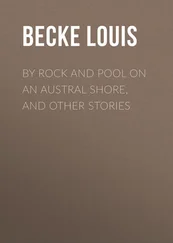“Get him on the horse,” Serena said.
Two men lifted their wounded foreman and held him upright on the stallion until Serena mounted behind him. She rode back to camp, one arm around Chaney’s waist, pressing the man against her swollen belly.
At camp Campbell and another man lifted Chaney off the horse and carried him into Dr. Carlyle’s caboose. Pemberton came in a few moments later and believed he looked at a dead man. The face was pale as chalk, and Chaney’s eyes rolled as if unmoored, his breathing sharp quick pants. Carlyle emptied a bottle of iodine on the wound. He finished and checked the tourniquet.
“Damn good job whoever tied this,” Carlyle said. He turned to Pemberton. “You’ll have to get him to the hospital quick if you want him to have a chance.” The doctor paused and looked up at Pemberton. “Do you want the bother of that or not?”
“I’ll take him in my car,” Campbell said before Pemberton could reply. Campbell motioned to the worker who’d helped bring Chaney in and they lifted the injured man off the table, set his arms around their shoulders, and began dragging him to the car. Only then did Chaney speak.
“I’ll live,” he gasped. “It’s done been prophesied.”
Pemberton followed the men outside. He looked for Serena and saw her riding back up the ridge where Chaney’s crew waited leaderless. As Pemberton went to get his own horse, he glanced toward the stringhouses and saw Mrs. Chaney on the porch, her clouded eyes turned in the direction of all that had just transpired.
A WEEK LATER Chaney walked back into camp. He had witnessed enough men hurt to know Pemberton Lumber Company took no charity cases, especially when every day men arrived begging for work. Pemberton assumed Chaney had come to get his mother, take her back to their old home on Cove Creek. But when Chaney came to his stringhouse, he did not pause but kept walking out of the camp and across the ridge to where the timber crews worked. For a few moments Pemberton contemplated the possibility that Chaney planned to avenge the loss of his left hand. That would not be a bad thing since it might make other workers more careful in the future.
Pemberton was in the back room with Dr. Carlyle when Chaney returned, walking beside Serena and the stallion. It was almost full dark and Pemberton had been watching out the window for her. She was later than usual. The food had been brought, and Carlyle had already eaten. Serena and Chaney walked toward the stable, Chaney adjusting his gait so he stayed between the saddle and the horse’s rump.
They came out a few minutes later, Chaney still lagging behind Serena in the manner of a dog taught to heel. She spoke briefly to the man, who then walked toward the stringhouse where his mother was.
“We need to keep Chaney on the payroll,” Serena said as she sat down at the dinner table.
“What good will he do for us with just one hand?” Pemberton asked.
“Anything I bid him do.”
Dr. Carlyle looked up from his supper.
“Because you saved his life?” he asked. “As one who has saved numerous lives, dear lady, I can assure you such gratitude is fleeting.”
“Not in this instance,” Serena said. “His mother prophesied a time when he would lose much but be saved.”
Carlyle smiled.
“No doubt a reference to some brush arbor meeting where his soul would be saved for the contents of his billfold.”
“Saved by a woman,” Serena added, “and thus honor bound to protect that woman and do her bidding the rest of his life.”
“And you believe you are that woman?” Dr. Carlyle said. “I assumed you one to deny belief in augury.”
“I don’t believe in it,” Serena said, “but Chaney does.”
IV
In her eighth month Serena awoke with pain in her lower abdomen. Pemberton found Carlyle in the caboose ministering to a worker who had a three-inch splinter embedded in the sclera of his eye. The doctor used a pair of tweezers to work the splinter free, washed the wound out with disinfectant, and sent the man back to his crew.
“Probably something has not lain on her stomach well,” Carlyle said as they walked to the house.
Chaney waited on the porch, Serena’s horse saddled and tethered to the lower banister.
“Mrs. Pemberton will be staying in today,” Pemberton said.
Chaney gazed steadily at Carlyle’s black physician’s bag as the two men passed and went on in the house.
Serena sat on the bed edge. Her face was pale, and her slow, shallow breaths were such as one might use while holding something incredibly fragile or incredibly dangerous. Serena’s peignoir lay open, the dark-blue silk rippling back to reveal her waxing belly.
“Lie down on your back,” Carlyle said, and took a stethoscope from his bag. The doctor pressed the instrument to Serena’s stomach and listened a few moments.
“All is well, madam.”
The doctor smiled at Serena.
“It is normal for women to be susceptible to minor, sometimes even nonexistent pains, especially when with child. What you are feeling is probably a mild gastrointestinal upset, or to put it less delicately, excessive gas.”
“Mrs. Pemberton is no hypochondriac,” Pemberton said as Serena slowly raised herself to a sitting position.
“I do not mean to imply such,” Dr. Carlyle said. “The mind is its own place, as the poet tells us. What one feels one feels. Therein it has its own peculiar reality.”
Pemberton watched Carlyle flatten his hand as if preparing to pat his patient on the shoulder, but the doctor wisely reconsidered and let the hand remain by his side.
“I can assure you that she will be better by morning,” Dr. Carlyle said when they stepped back out on the porch.
“Is there anything that will help until then?” Pemberton asked. He nodded at Chaney, who still waited on the steps. “Chaney can go to the commissary, to town if necessary.”
“Yes,” Dr. Carlyle said, then turned to Chaney. “Go to the commissary and fetch your mistress a bag of peppermints. I find they do wonders when my stomach is sour.”
THE NEXT MORNING Pemberton awoke to find his wife sitting up with the covers at her feet, Serena’s open left hand pressed between her legs. When he asked what was wrong, Serena could not speak. Instead, she raised the hand as if making a vow, her fingers and palm slick with blood. He lifted Serena into his arms and carried her out the door. The train was about to make an early run to the sawmill and men had collected around the tracks. Pemberton yelled at several loitering workers to uncouple all the cars but for the coach. Mud holes pocked the ground but Pemberton stumbled right through them as men scurried to uncouple cars and the fireman frantically shoveled coal. Campbell had come from the office and helped get Serena into the coach and lay her across a seat. Pemberton told the highlander to call the hospital and have a doctor and ambulance waiting at the depot, then to drive Pemberton’s Packard to the hospital. Campbell left and Pemberton and Serena were alone amidst the shouts of workers and the Shay engine’s gathering racket.
Pemberton sat on the seat edge and pressed a towel against Serena’s groin to try to stanch the bleeding. Serena’s eyes were closed, her face fading to the pallor of marble as the engineer put the reverser into forward. The tumbler shaft turned and set the position of the steam valves. The engineer knocked off the brakes and opened up the throttle. Pemberton listened to the train make its gradations toward motion, steam entering the throttle valve into the admission pipes and into the cylinders before the push of the pistons against the rod, and the rod turning the crankshaft and then the line shaft turning through the universal joints and the pinion gears meshing with the bull gears. Only then the wheels ever so slowly coming alive.
Читать дальше












